From Kimchi to Kalbi: 7 Spicy Secrets of Korean BBQ Sauce That’ll Fire Up Your Grill!
If you’ve ever bitten into a piece of Korean BBQ short rib and felt your taste buds do a happy dance, you know it’s not just the meat—it’s the sauce. That sticky, sweet, spicy, umami-rich elixir that clings to every bite is the unsung hero of Korean BBQ. In this post, we’re diving deep into the world of global spice traditions, specifically how they shape Korea’s most beloved grill companion: BBQ Korean sauce.
Table of Contents
- A Flavor-Filled History Lesson
- The Core Ingredients That Make It Magic
- Secret Spices: What Sets Korean BBQ Sauce Apart?
- Korean BBQ Sauces Around the Globe: Regional Twists
- Pro Tips for Applying Korean BBQ Sauce Like a Grill Master
- How to Make Your Own Korean BBQ Sauce at Home
- Pairing Korean BBQ Sauce with Meats & Sides
- The Future of Korean BBQ Sauce: Trends & Innovations
- Conclusion
A Flavor-Filled History Lesson
Let’s rewind the clock. Korean BBQ (or Kalbi and Buldak) isn’t a new trend—it’s rooted in centuries-old culinary practices. But the sauce? That’s evolved over time.
Originally, Koreans used simple fermented ingredients like doenjang (fermented soybean paste) and gochujang (red chili paste) to season grilled meats. Fast forward to modern times, and thanks to globalization and cross-cultural fusion, the sauce now often includes ingredients like sugar, sesame oil, garlic, honey, and even soda pop.
This evolution reflects a global spice tradition where local flavors meet international tastes—creating something truly unique.
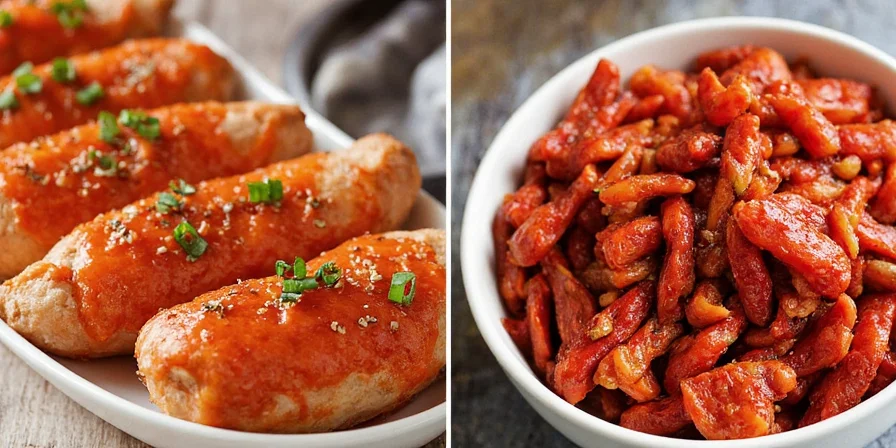
The Core Ingredients That Make It Magic
The magic of Korean BBQ sauce lies in its balance of sweet, salty, spicy, and savory notes. Let’s break down the essential players:
- Gochujang: The backbone of many Korean sauces, this fermented red chili paste brings depth and heat.
- Soy Sauce: Adds saltiness and umami richness.
- Sesame Oil: Offers a nutty aroma and enhances mouthfeel.
- Garlic & Ginger: Aromatic powerhouses that build flavor complexity.
- Sugar or Honey: Balances the spiciness and creates that glossy finish.
- Rice Wine or Mirin: Adds a touch of sweetness and helps tenderize meat.
| Ingredient | Flavor Profile | Alternative |
|---|---|---|
| Gochujang | Spicy + Sweet + Savory | Miso + Chili Flakes |
| Soy Sauce | Salty + Umami | Tamari |
| Sesame Oil | Nutty + Rich | Peanut Oil |
| Sugar | Sweet | Honey or Agave |
Secret Spices: What Sets Korean BBQ Sauce Apart?
What makes Korean BBQ sauce stand out from other Asian grilling sauces? It’s all about the spice blends. While gochujang gives it a base level of fire, traditional Korean spice mixes include:
- Gochugaru (Korean chili powder): For customizable heat levels
- Perilla Seeds: Nutty and aromatic, common in home recipes
- Black Pepper: Often overlooked but adds subtle kick
- Dried Shrimp Powder: Boosts umami, especially in coastal regions
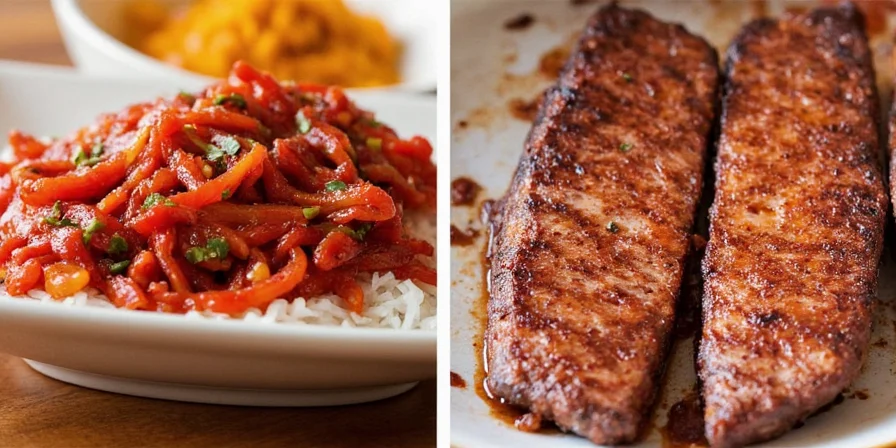
Korean BBQ Sauces Around the Globe: Regional Twists
As Korean BBQ has gone global, so have its sauces. Here’s a fun look at how different cultures have embraced—and altered—the original formula:
| Region | Style | Twist |
|---|---|---|
| Korea (Original) | Balanced sweet-spicy | Traditional fermentation methods |
| United States | Thicker, sweeter | Corn syrup & pineapple juice additions |
| Japenese Fusion | Umami-rich | Mirin-heavy and tamari-based |
| Brazil | Fruity Heat | Additions like guava or passion fruit |
| Mexico | Smoky & Spicy | Chipotle or ancho peppers added |
Pro Tips for Applying Korean BBQ Sauce Like a Grill Master
You don’t just slather it on and hope for the best! Timing and technique matter. Here are some pro-level tips to elevate your next barbecue session:
- Brush it on late: Apply during the last few minutes of grilling to avoid burning the sugars.
- Double coat: Glaze once halfway through cooking, then again at the end for extra shine.
- Use a pastry brush: Ensures even distribution without drowning the meat.
- Save some for dipping: Don’t be afraid to offer extra sauce on the side—it’s part of the experience!
- Don’t marinate too long: Soy sauce can make meat tough if left overnight; 2–4 hours is perfect.
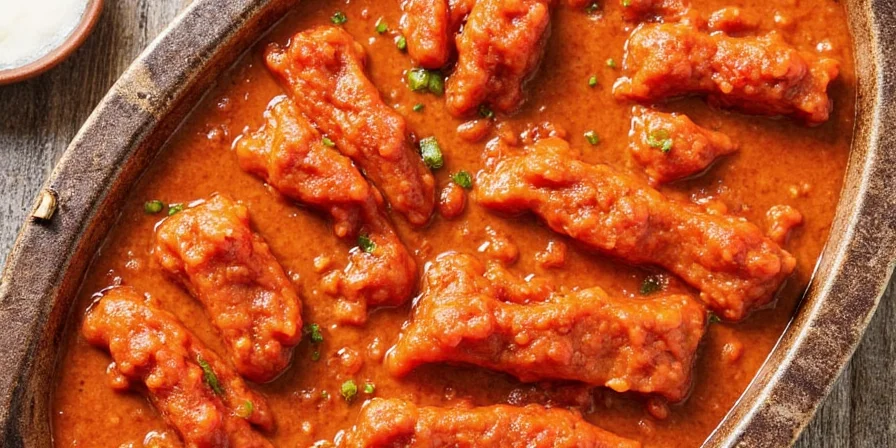
How to Make Your Own Korean BBQ Sauce at Home
Ready to DIY? Here’s a tried-and-true recipe you can whip up in 10 minutes:
Homemade Korean BBQ Sauce Recipe
- 4 tbsp gochujang
- 2 tbsp soy sauce
- 1 tbsp sesame oil
- 1 tbsp honey or brown sugar
- 1 clove garlic, minced
- 1 tsp grated ginger
- 1 tbsp rice wine or mirin
- ½ tsp black pepper
- Optional: ½ tsp gochugaru for extra heat
- Mix all ingredients in a bowl until smooth.
- Let rest for 30 minutes for deeper flavor development.
- Use as marinade or glaze while grilling.
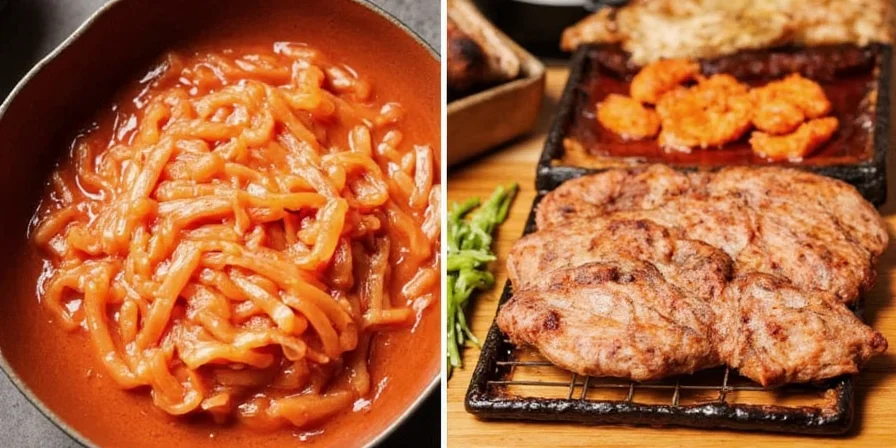
Pairing Korean BBQ Sauce with Meats & Sides
The right pairings can take your Korean BBQ night from good to legendary. Here's what to serve alongside your sauce-drenched delights:
- Meats: Short ribs (kalbi), bulgogi beef, pork belly (samgyeopsal)
- Veggies: Grilled shishito peppers, zucchini, mushrooms
- Sides: Kimchi, pickled radish, ssam wraps (lettuce leaves), steamed rice
- Drinks: Makgeolli (rice wine), soju cocktails, cold barley tea
The Future of Korean BBQ Sauce: Trends & Innovations
As plant-based diets rise and global spice trends evolve, expect Korean BBQ sauce to follow suit:
- Vegan versions: Using mushroom-based umami boosters and miso instead of fish sauce.
- Low-sodium alternatives: With more health-conscious consumers, reduced-salt sauces are gaining popularity.
- Functional foods: Fermented probiotic-infused sauces for gut health benefits.
- Global fusion flavors: Think coconut milk-infused sauces in Southeast Asia or smoked chipotle variations in Texas-style BBQ.
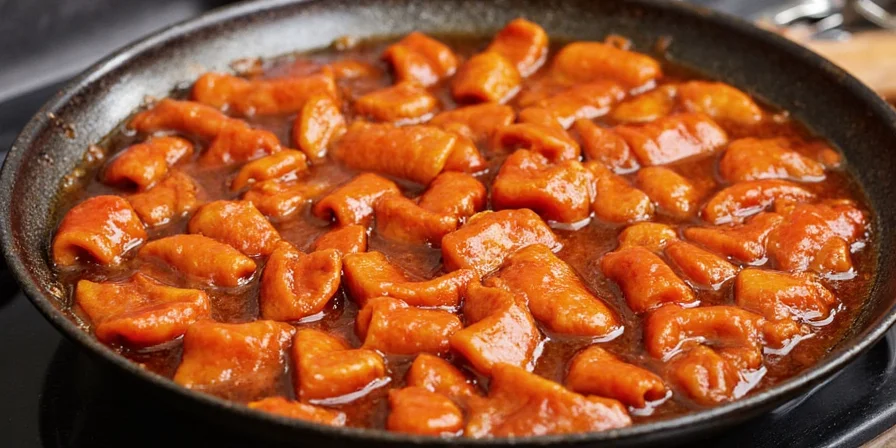
Conclusion
Whether you're grilling in your backyard or dining at a bustling Seoul market, Korean BBQ sauce is more than a condiment—it's a global spice tradition wrapped in flavor. Its evolution from ancient fermentation techniques to modern-day gourmet variations shows how food connects us across time and geography.
So next time you’re at the grill, remember: a great Korean BBQ experience starts with a killer sauce. Now that you’ve got the tools, the spices, and the science behind it, go forth and ignite those flames!
Stay spicy, stay sassy, and keep that grill smokin’!

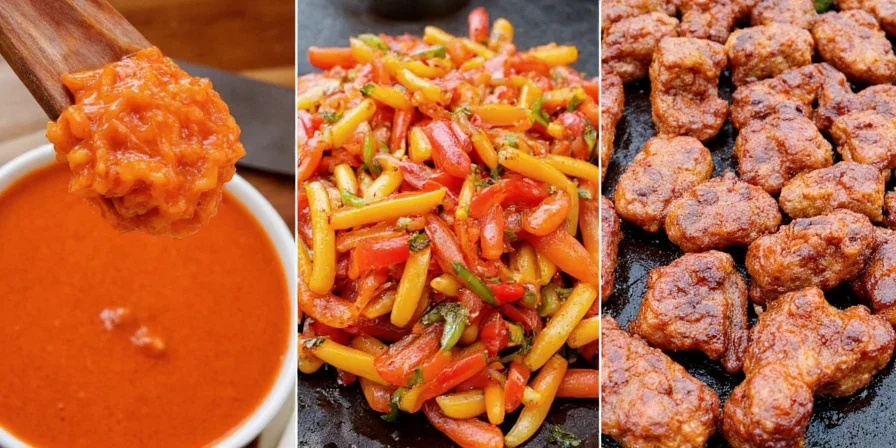









 浙公网安备
33010002000092号
浙公网安备
33010002000092号 浙B2-20120091-4
浙B2-20120091-4